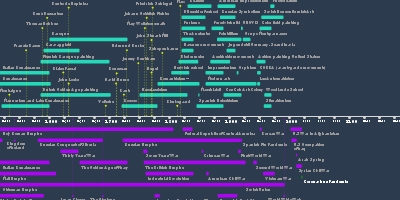jan 1, 515 BC - Parmênides
Description:
Parmenides of Elea (/pɑːrˈmɛnɪdiːz ... ˈɛliə/; Greek: Παρμενίδης ὁ Ἐλεάτης; fl. late sixth or early fifth century BC) was a pre-Socratic Greek philosopher from Elea in Magna Graecia (meaning "Great Greece," the term which Romans gave to Greek-populated coastal areas in Southern Italy). He is thought to have been in his prime (or "floruit") around 475 BC.[a]Parmenides has been considered the founder of metaphysics or ontology and has influenced the whole history of Western philosophy.[5][b] He was the founder of the Eleatic school of philosophy, which also included Zeno of Elea and Melissus of Samos. Zeno's paradoxes of motion were to defend Parmenides' view.
The single known work by Parmenides is a poem, On Nature, only fragments of which survive, containing the first sustained argument in the history of Western philosophy. In it, Parmenides prescribes two views of reality. In "the way of truth" (a part of the poem), he explains how all reality is one, change is impossible, and existence is timeless, uniform, and necessary. In "the way of opinion", Parmenides explains the world of appearances, in which one's sensory faculties lead to conceptions which are false and deceitful, yet he does offer a cosmology.
Parmenides' philosophy has been explained with the slogan "whatever is is, and what is not cannot be". He is also credited with the phrase out of nothing nothing comes. He argues that "A is not" can never be thought or said truthfully, and thus despite appearances everything exists as one, giant, unchanging thing. This is generally considered one of the first digressions into the philosophical concept of being, and has been contrasted with Heraclitus's statement that "No man ever steps into the same river twice" as one of the first digressions into the philosophical concept of becoming. Scholars have generally believed that either Parmenides was responding to Heraclitus, or Heraclitus to Parmenides.
Parmenides' views have remained relevant in philosophy, even thousands of years after his death. Alexius Meinong, much like Parmenides, defended the view that even the "golden mountain" is real since it can be talked about. The rivalry between Heraclitus and Parmenides has also been re-introduced in debates in the philosophy of time between A theory and B theory.
Added to timeline:
Date:
jan 1, 515 BC
Now
~ 2542 years ago
